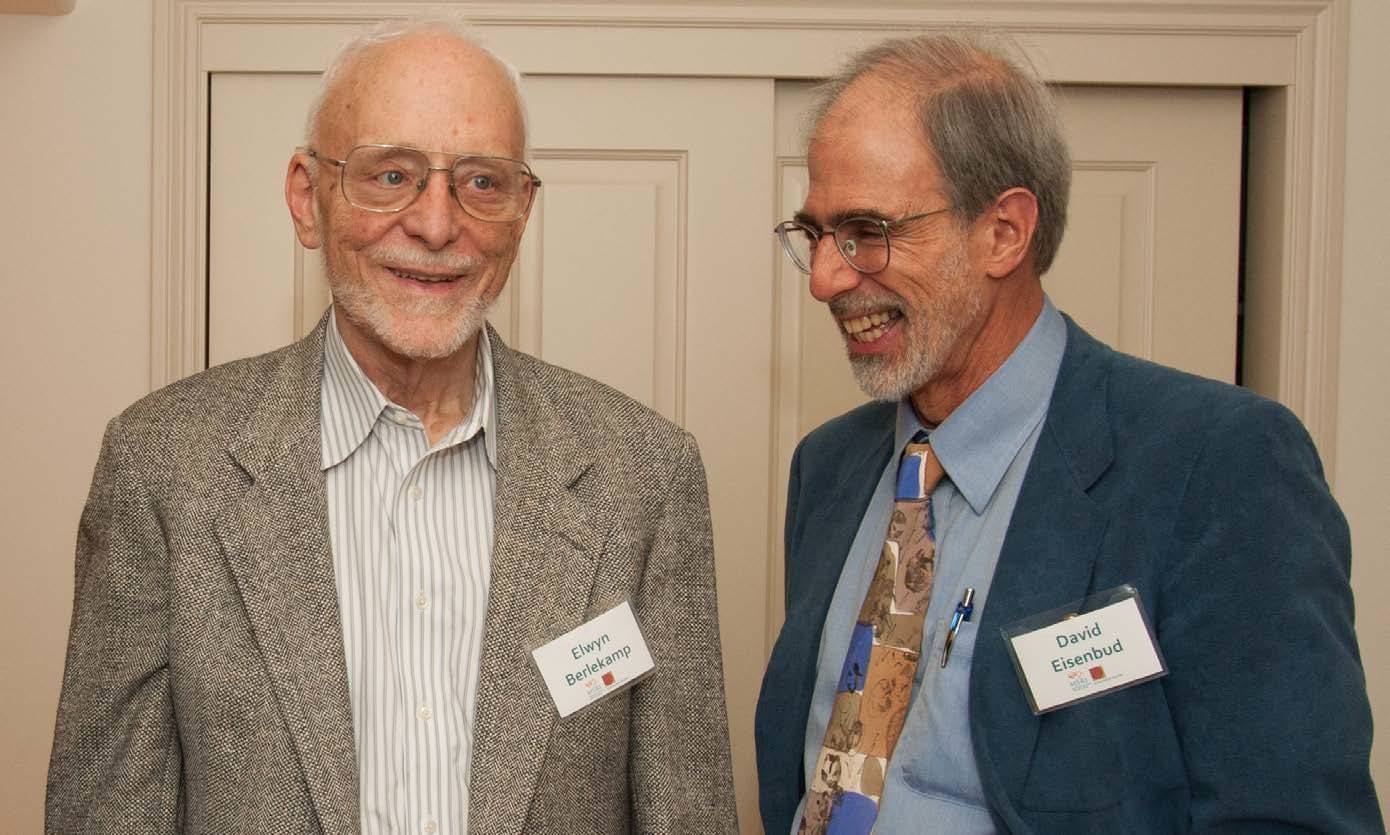by David Eisenbud

I’m quite delighted to announce the completion of a fundraising campaign to endow a Postdoctoral Fellowship in honor of Elwyn Berlekamp! Indeed, so many of Elwyn’s friends and admirers were eager to contribute to the campaign that we were able to go well over our goal and raise \$1,000,000 for the endowment, for a little fund for Fellows to use in addition to the basic stipend.
In computer science and information theory, Elwyn is famous for his algorithms in coding theory and for the factorization of polynomials. In mathematics, his best-known work is on combinatorial game theory, partly disseminated in his four-volume work Winning Ways with John H. Conway and Richard Guy.
One of his important accomplishments in game theory was his analysis of positions in the endgame of Go. He demonstrated the effectiveness of his theory by setting up a plausible endgame position from which he beat one of the Japanese champions of the game, after which he set up the same position, reversed the board, and beat the master a second time. And again and again, for a total of seven consecutive wins. He also invented a variation of the game called “Coupon Go,” which is closer to the elegant mathematical theories. This has attracted the attention of both mathematicians and several world-class professional Go players.
Elwyn’s love of game strategy extends to everyday life as well: I have always been impressed by the fact that once, in a meeting of Berkeley’s computer science department when someone proposed a motion of no-confidence against the chair, Elwyn seconded it, and amid general laughter the motion was dropped. The chair was…Elwyn!
Elwyn’s father was a minister, and one sees the father’s influence on the son in a strong and consistent ideal of service to the greater good, abundantly clear in Elwyn’s commitment to MSRI among other institutions. In fact, his engagement with MSRI began even before there was an MSRI. Elwyn recounts going along for a meeting with the chancellor to convince him of an aspect of MSRI’s structure and finding an easy task: the chancellor began the meeting by announcing that he approved the arrangement. (Years later, Elwyn taught me an important lesson of negotiation: once you have agreement, change the subject! I don’t know how that conversation in the chancellor’s office continued.)
Meeting Elwyn
Elwyn was Chair of MSRI’s Board in 1996 when I applied to become director. He took his role extraordinarily seriously: to make sure that I was OK, he made a visit to my home near Boston (I was teaching at Brandeis at the time). I invited my colleague and mentor David Buchsbaum to join us for brunch, to bolster my team. I remember that after Elwyn left, Buchsbaum commented that he would worry about collaborating with someone quite so intense as Berlekamp!
After Elwyn hired me, the intensity turned out to be very positive. Elwyn mentored and coached me in what was, for me, an extraordinary experience of growth and learning. He introduced me to a wide and useful acquaintance and liberally allowed me to use his connections. During long car rides, I learned a great deal about the history of MSRI, in which he’d been very engaged, and the many personalities that had played a role. I count myself most fortunate to have had as mentors Saunders MacLane, my Ph.D. advisor; David Buchsbaum, my postdoctoral mentor, and longtime friend and collaborator; and finally Elwyn, who taught me so much and helped me in the transition to my role at MSRI, and whose friendship and encouragement has meant a great deal to me.
For all these reasons, it is a real pleasure to have established the Berlekamp Postdoctoral Fellowship at MSRI in addition to the Berlekamp Garden, created in 2006. May the Fellows go on to do great work in mathematics and for the mathematics profession!